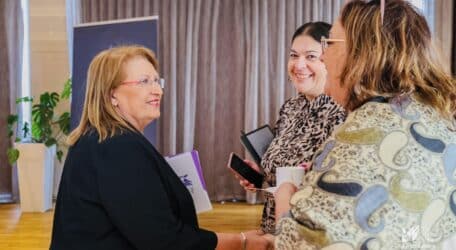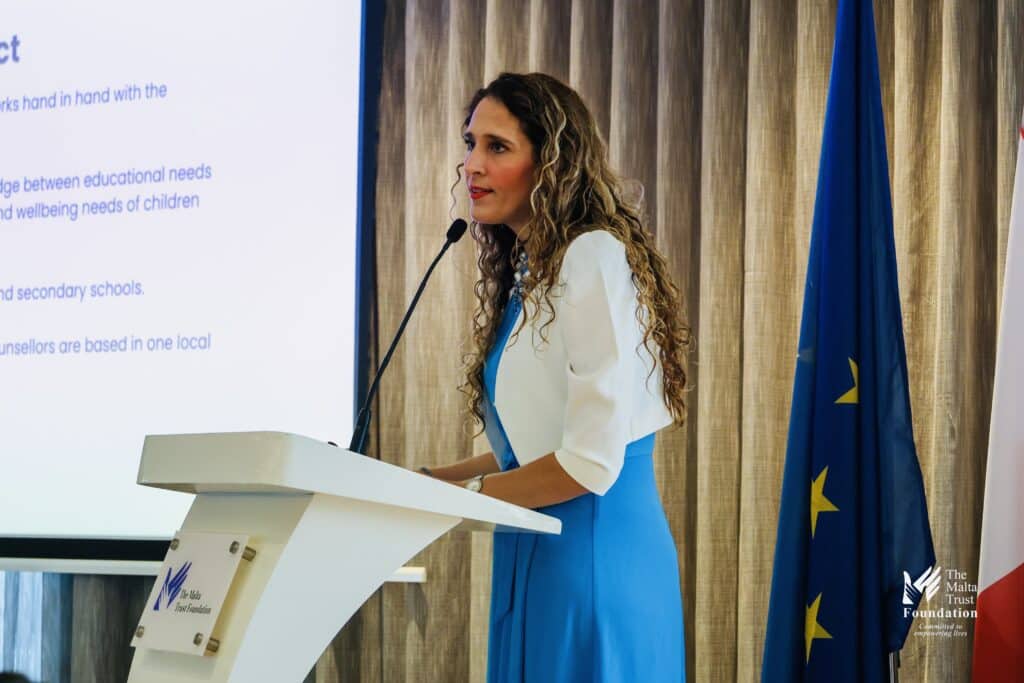
Some children going to school hungry and facing neglect, warns Blossom Project report
Some children are going to school hungry, relying on digital devices for company and spending entire days away from their families as parents work long hours, according to a report by The Blossom Project, which offers psychosocial support in 12 schools.
The report, compiled by lecturer and researcher Bernadine Satariano, paints a stark picture of children who spend long hours without an adult taking care of them, attending breakfast clubs starting as early as 7am, and going to after-school programmes that end at 5pm.

“Blossom’s psychosocial team is concerned about the deep abandonment some children face when parents are compelled to work long hours. They arrive at school hungry and are then expected to engage in cognitively demanding academic tasks without food,” Dr Satariano said.
The report also revealed that some primary schoolchildren were managing their own morning routines, including waking themselves up, preparing lunch, and attending school independently, often arriving late or unprepared.
“This distressing narrative illustrates a decline in parental care and attention which has implications for children’s safety and academic engagement,” Dr Satariano said.
An expert in child wellbeing, Dr Satariano warned that chronic neglect disrupts attachment formation, emotional regulation, and cognitive development, setting the stage for long-term psychosocial difficulties.
A further dimension of this neglect was children’s reliance on digital devices as primary companions, often replacing direct adult supervision or engagement.
While parents may believe providing devices compensates for their absence or fulfils children’s needs, these technological devices are exacerbating feelings of neglect and expose children to online risks.
Devoid of meaningful parental mediation, the digital environment can become a space where emotional needs go unmet, and vulnerabilities deepen.
“By Years 5 and 6, parents often assume children are old enough to fend for themselves, but they are still too young. Consequently, this leaves them vulnerable to online abuse and harm,” a Blossom Project therapist said.
The report sheds light on schoolchildren’s increasing struggles, and reveals that disruptive and challenging behaviour, family problems, friendship issues and anxiety are the most prevalent difficulties driving children to seek counselling.
Since its inception 10 years ago, Blossom, founded by Her Excellency Marie-Louise Coleiro Preca under The Malta Trust Foundation, has supported more than 8,000 schoolchildren, becoming one of the foundation’s most impactful initiatives.
Ms Coleiro Preca urged the authorities to focus on policies that would address these worrying situations, especially at a time when Malta was facing critically low fertility rates and families were struggling to cope.
“A worrying proportion of children are facing heartbreaking situations alone. The services of counsellors and specialised professionals in schools are not optional, but should be a national priority. This is not charity; this is about children’s human rights and we have a responsibility to deliver,” she added.
“Blossom stands as a blueprint for the future of school-based mental health support, and with everyone’s support, I hope we can continue to expand our services to secure our children’s future,” Ms Coleiro Preca told those gathered for the report’s launch.
The findings were presented today during a half-day conference, From Insight to Impact: Making Student Wellbeing a National Priority, attended and addressed by the Prime Minister’s wife, Dr Lydia Abela, as well as Social Policy Minister Michael Falzon, Health Minister Jo Etienne Abela, and Education Minister Clifton Grima.
Launched ahead of World Mental Health Day, the event was moderated by Isabelle Anastasi, counsellor and Blossom project coordinator, and attended by counsellors and experts, including Mental Health Commissioner Denis Vella Baldacchino.
Dr Satariano, who praised Ms Anastasi for her leadership and coordination and the Blossom Project psychosocial team for their work and support, urged policymakers and stakeholders to invest in parental training, ongoing research and evidence-based interventions.
“In a rapidly evolving society, continuous research is crucial to understand the realities children face. Failing to act now not only neglects their needs today but weakens the very foundation of tomorrow’s society.”
- October 8, 2025 No comments Posted in: Let's do Lunch





